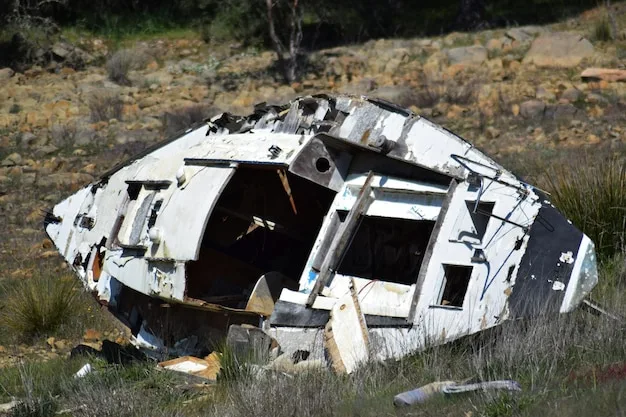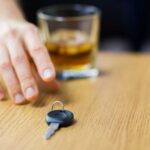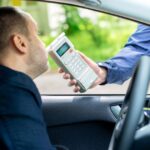Boat Accident Attorney in Elkhart, Indiana

Boat accidents are unfortunately all too common in Indiana. With so many lakes and rivers, boat enthusiasts often take to the water without thinking about the potential dangers. If you or a loved one has been involved in a boat accident, you need the help of an experienced boating accident attorney.
The lawyers at Wilson & Kinsman, LLC law firm have decades of experience handling boat accident cases in Indiana. They know the ins and outs of the law, and they will fight to get you the compensation you deserve. Don’t try to go it alone—reach out to Wilson & Kinsman LLC today for a free consultation.
Why Do I Need a Boat Accident Attorney in Indiana?
If you’ve been involved in a boat accident, you may be wondering if you need to hire a lawyer. The answer depends on many factors, but in general, it is always a good idea to consult with an experienced boating accident lawyer.
There are many reasons why you should hire a lawyer after a boat accident, but some of the most important reasons include:
– An experienced boat accident lawyer will know how to protect your rights and ensure you receive the compensation you deserve.
-A boat accident lawyer will have the necessary experience and resources to investigate your accident and build a strong case.
-A boat accident lawyer can help you navigate the complex legal system and deal with insurance companies.
-A boat accident lawyer will fight for your rights in court if necessary.
If you’ve been involved in a boat accident, the experienced attorneys at Wilson & Kinsman, LLC can help. We have years of experience handling boating accident claims, and we will fight to get you the compensation you deserve. Contact us today for a consultation. We’re here to help.
What Is a Boat Accident?
Boating accidents can occur due to a variety of factors, including capsize, flood, explosion, mechanical failure, or collision. Indiana’s DNR mandates that boats must stay at the scene of an accident. If someone is hurt or killed in an accident, boaters are required to file a report within 24 hours. If you don’t follow this law, you could be charged with a misdemeanor or a crime, depending on how bad the accident was.
Boaters who don’t operate their boat or personal watercraft safely can also face criminal prosecution. This includes driving backward, weaving through a busy area, or following another boat too closely. Drunk boating is illegal and is punishable by the same penalties as drunk driving, including felony charges in an accident, losing boating privileges, fines, and jail time. If you have been involved in a boating accident, it is important to speak with a boat accident lawyer who is familiar with Indiana’s laws and can help you protect your rights.
Indiana’s Boating Laws
Indiana law requires boat operators to have a valid driver’s license, and anyone who has never been licensed must complete an approved boater education course. The course must be approved by the Indiana Department of Natural Resources, and the student must have a BMV ID card.
There are also age restrictions in Indiana. No one under 15 may operate a 10-hp motorboat or PWC. However, 15-year-olds can operate a motorboat or PWC until they are licensed drivers, provided they finish a boater education course and have a BMV ID card.
If you have been involved in a boat accident, it is important to speak to an experienced boat accident lawyer who can help you navigate the complex legal process.
Types of Boating Accidents
There are four main types of boat accidents:
- Collisions with other boats
- Ship wake collisions
- The waves strike the boat
- And the boat strikes against another object or land.
Collisions With Other Boats
In Indiana, both boat operators are frequently at fault in an accident, which means that injured passengers on either boat could sue both operators. If one driver was wounded, he or she could only sue the other driver if he or she was less than 50% at fault. The motorboat is more likely to be at fault in a sailboat-motorboat collision because “The Rules of the Road” instruct motorboats to avoid sailboats.
Ship Wake Collisions
Hitting another boat’s wake can be a dangerous proposition. The jolt from the impact can easily push passengers overboard, and the boat itself can be damaged.
Culpability in a boat wake accident can depend on several factors, such as:
- The speed of the boat
- The magnitude of the wake
- The level of visibility
- Boat traffic in the vicinity of the accident
- and whether the operator advised passengers of a large wake.
In Indiana, people who drive boats must follow federal and state rules and regulations, as well as safe ways to drive boats.
Depending on the circumstances of the accident, the operator of the boat that caused the wake may be held responsible for your injuries. For example, if the boats were in a no wake zone, any wake would be considered negligence.
Alternatively, if the boat was zipping through a crowded location and produced a significant wake, the operator may be deemed irresponsible. In contrast, if the accident occurred in a remote area, it is unlikely that the other driver would be found at fault.
Waves Striking The Boat
These accidents can be very dangerous and often result in serious injuries or even death. Waves striking the boat can cause the boat to capsize or sink, and can also create a powerful current that can pull swimmers away from the boat and into danger.
Boat Crash Against Another Object or Land
Anyone who has been on a boat knows it can be tricky to operate. Even in good weather and with good visibility, it is possible to hit a submerged object.
In bad weather and with poor visibility, the risk of running aground or hitting the coast is even greater. If you are involved in a boat crash, the operator’s liability will depend on the conditions at the time of the accident.
If the operator had nautical charts and was traveling slowly and cautiously, he or she may not be considered negligent. But if the boating accident happened in thick fog and the driver didn’t have any charts or a GPS, crashing into a jetty would be seen as carelessness.
Lack of Safety Gear Onboard
Indiana law requires that every boat have certain safety equipment on board, including life jackets, throwable life rings, navigational lights, flares, loud whistles, and fire extinguishers. Lack of safety equipment won’t cause an accident, but it can hinder rescue efforts.
Flares and whistles help handicapped boat passengers signal passing boats. Life jackets and life rings help rescue people who fall overboard. Without sufficient safety measures, the boat’s owner might be sued for carelessness.
Principal Factors or Common Cause in Boat Accidents
Accidents on boats can happen for many different reasons, but the operator’s carelessness or negligence is often to blame.
Drunk Boating
Intoxicated boating is illegal and can be very dangerous. Drunk boating causes the most fatal boat accidents. If you are involved in a boat accident, you should contact a boat accident lawyer in Indiana.
An intoxicated boat operator can face criminal charges and be held accountable for any injuries that occur. When a boating accident happens, the operators are often given a breathalyzer test to determine if they were impaired at the time of the accident.
If the operator is found to be negligent or reckless, they can be held responsible for any damage that occurs.
Overspeeding
One of the most common boat operator mistakes is overspeeding. Experienced boaters know that it is important to modify their speed based on conditions like wind, weather, and wave height. Also, there are many places where boaters have to slow down because of shallow water or other things in the way.
If a boat is moving too fast and strikes a large wave, the operator will likely lose control. This can lead to passengers falling on the deck, the boat hitting another boat or object, or even a passenger plunging overboard.
Reckless Operation
To recover damages after a boat accident, you will need to prove that the other boat operator was acting recklessly. Reckless boat operation is when you don’t care about safety, like when you go out in bad weather, race other boats, or put people in danger.
If you can show that the other boat operator was acting recklessly and that their actions led to your injuries, you may be able to recover damages for your medical bills, lost wages, and pain and suffering.
What Should You Do If You’re Injured in an Accident?
If you are involved in a boating accident, there are certain steps you must take to ensure your safety and the safety of those involved.
- Stop your boat and call for assistance.
- Then, render aid to anybody who is injured, unless doing so might put your boat or passengers at risk.
- You should provide written notice of your name, address, and vessel identification number to anybody who was harmed by the accident or to the owner of any property that was damaged in the collision.
Reporting a Boating Accident Incident
Capsizing, collision, foundering, flooding, fire, explosion, and the loss of a boat other than by theft are examples of boating accidents.
- You must tell the county sheriff’s office, the nearest state police station, or the department’s law enforcement center as soon as possible.
- Indiana law says that the operator must fill out an accident report form from the Indiana Department of Natural Resources if someone dies or goes missing, if someone is hurt or needs medical care, or if the damage to the boat and other property is more than $750.00.
- It is also important to keep in mind that your report must be submitted within 24 hours of the accident.
When can the accident victim pursue compensation?
If you or someone you love has been hurt in a boat accident, you may be wondering if you have a compensation case. Your case must meet some legal requirements for you to file a personal injury claim.
A Legal Obligation
The first is that the person who caused the accident must have a legal obligation to the victim. Boat operators have a responsibility to act properly and keep both the people on board and the general public safe.
Breach of Legal Obligation
Many different factors that can contribute to a boat accident, but for the victim to pursue compensation, there must be a breach of legal obligation. The person who owed the obligation must have failed to meet their responsibility. For example, a boat operator violates their responsibility to keep others safe if they are careless or irresponsible.
Causation
If you have been injured in a boat accident, you may be wondering if you are entitled to compensation. The answer depends on several factors, including the severity of your injuries and the cause of the accident. To prove negligence, you will need to show that the other boat operator’s actions were the cause of your injuries.
Damages
To bring a claim for damages after a boat accident, the victim must have endured a real loss. This can include both financial and non-financial damages, like medical bills, lost property, and pain and suffering.
The victim may file a lawsuit and seek restitution for their losses if all four conditions are satisfied and the boat accident lawyer can demonstrate that carelessness occurred. In Indiana, boat accident lawyers must prove that the carelessness of the other boat operator was the cause of the accident to recover damages.
Common Injuries from a Boating Accident
- Fractures
- Broken bones
- Lacerations
- Concussion
- Head injury
- Neck injury
- Back injury
- Brain Injury
- Spinal cord injury
Contact Our Elkhart Boat Accident Attorney Now!
If you or a loved one has been involved in a boat accident, it is important to contact an experienced Elkhart boat accident attorney as soon as possible. Wilson & Kinsman, LLC is a law firm with over 50 years of experience handling boat accident cases in Indiana.
We understand the complex issues that can arise in these cases, and we have the skills and resources necessary to help you get the compensation you deserve. Call 574-522-1900 or contact us online to schedule a free consultation.
Give us a call!
Testimonials
Read what our former clients have to say:




